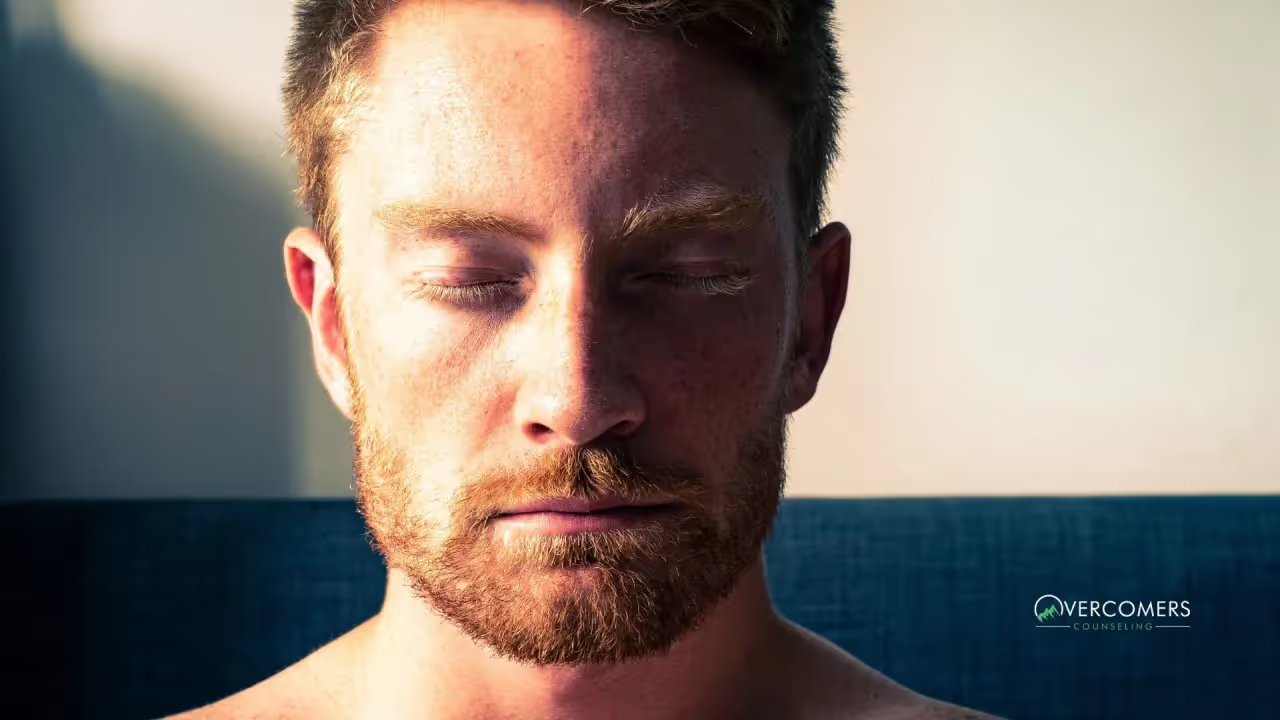Did you know that your nervous system and anxiety go hand and hand? At any given moment the state of your anxiety is correlated with the state of your...

Did you know that your nervous system and anxiety go hand and hand?
At any given moment the state of your anxiety is correlated with the state of your nervous system.
If your nervous system is running a little haywire - maybe from a stressful work meeting, an unfamiliar experience, overstimulation from social media or crowds, or intense conversations - the chances your anxiety is going to increase are probable.
Learning how to regulate your nervous system can be helpful in decreasing anxiety because your nervous system and anxiety are very connected.
Causes for the nervous system overloading may include the resurgence of past traumas, the presence of specific thoughts in your mind at any point in time, and the ingestion of foods that provoke unfavorable reactions in the body.
Let's look at past traumas and thoughts first as they too are connected.
If we have experienced something in our past that made us feel fearful, unsafe, threatened, and/or disempowered we can find ourselves in a present-day experience that triggers us to remember this past negative experience.
When this happens our body ( and mind ) can go straight into survival mode thinking it is about to reexperience the same or similar traumatic event ( whether it is or not ).
This sends adrenaline through the body and pumps up our nervous system so we can act or react to protect ourselves if needed.
An example of this you might have heard before is a soldier coming back from war - hearing a car backfire - and thinking he is being shot at.
He isn't actually, however, that sound reminds him of being shot at in war and his body immediately feels threatened and reacts.
This same thing can happen to any experience that is perceived as making you feel fearful, unsafe, or threatened in some way.
Since your nervous system and anxiety are connected - this triggering response can be a lot for your nervous system which leads to increased anxiety.
Our thoughts come into play here because, in any situation where trauma is resurfacing, there are always thoughts that accompany it.
Thoughts that might look like: I can't believe this is happening again, I feel unsafe, this is not okay, etc.
These types of thoughts are like adding fuel to the fire.
Learning how to choose your thoughts to rewrite the story in your mind and help soothe yourself is also important.
In times of anxiety take note of the thoughts you are having and replace them with thoughts such as I am safe, I am here in the present, I am reexperiencing an old wound that I am now healing, I am okay, etc.
Now that you have a better idea of how your nervous system and anxiety are connected, learning how to regulate your nervous system can be really helpful in decreasing anxiety.

Breathwork is the practice of focusing your attention on your breath.
This looks like being in a comfortable seat or laying down and putting all your attention on the act of breathing in and out.
You can try it now if you'd like.
As you inhale you feel your lungs expanding outward, your chest and belly lifting, and as you exhale you notice your chest and belly softening and lowering, your shoulders softening down away from your ears.
You might feel cooler air going through your nose on the inhale, and slightly warmer air going through your nose on the exhale.
Focusing your attention on your breath like this for 5 minutes can dramatically help you in regulating your nervous system.
This is similar to meditation. In moments where your nervous system and anxiety are heightened - use this breathwork to help relax you and bring yourself back into the present moment.
A breathwork sequence you can use is box breathing.
Where you are counting to 5 on the inhale, holding your breath for 5 seconds, and then exhaling for 5 seconds.
Doing this sequence for 2 minutes helps bring your nervous system back into a state of safety and rest.
To really have breathwork helps you in regulating your nervous system and anxiety - doing this sequence daily for 10 minutes in the morning.
Embracing Yoga to Unwind and Find Tranquility
The movement of yoga helps to bring your nervous system into a parasympathetic state ( relaxed state ) as well.
By practicing yoga, just like any other form of exercise, the more you work a muscle the stronger it gets.
In yoga, the more you train your body to be in a stable and relaxed state the more it will maintain the stable and relaxed state in times of stress or trauma.
Find a yoga class near you or online that offers Restorative Yoga or Yin Yoga.
Both these types of yoga are focused on relaxing the body and releasing stress and tension.
The food you consume also plays a role in your nervous system and anxiety.
It's important to eat foods that are supportive of your body and provided a nourishing and healing aspect.
Foods that are processed ( like Cheez-Its, Doritos, chips, cereals, Oreos, and goldfish ) are not supported for a healthful function body.
Instead choose foods that can be found in the produce section of your grocery store that don't require a package ( like apples, celery, bananas, mangos, grapes, lettuce, and tomatoes ).
These whole fresh foods provide nourishment and soothing qualities to your body.
If you are new to cooking look for cooking classes you can take to learn how to cook whole foods for yourself.
There are also certain foods that are in the category of nervine.
This simply means it is a food that soothes, calms, relaxes, and strengthens your nervous system. Some of these foods are basil, mango, cardamom, oats, lavender, lemon balm, chamomile, celery seed, coriander, cumin, fennel seed, and others.
Incorporating these foods into your routine will help support and strengthen your nervous system.
Achieving a well-regulated nervous system can greatly contribute to reducing anxiety.
There are various techniques for maintaining a balanced nervous system, including breathwork, yoga, and consuming a healthy diet.
Explore one or two methods that appeal to you and experiment with them to determine their effectiveness.
I hope this information proves useful to you. If it does, remember to establish a routine that integrates these practices regularly, fostering a more balanced and stress-free life.
It's important that you feel comfortable discussing personal matters with your therapist in order to open up and get more out of therapy sessions; therefore finding someone who meets certain criteria like experience level, expertise areas, and personality is key when selecting a therapist who can give meaningful feedback about how best handle issues related to anxiety or other mental health concerns.
Ignoring anxiety can exacerbate symptoms and make it more challenging to manage over time. This can result in a negative impact on your personal, professional, and social life, leading to feelings of isolation and even depression.
Other activities which have been found helpful in reducing both immediate feelings of anxiousness and long-term anxieties associated with chronic disorders include yoga, journaling, nature walks, art therapy, volunteering, and other low-stress activities. Additionally, developing a healthy lifestyle incorporating adequate sleep, physical activity, and nutritious meals can help reduce overall stress levels.
To reduce your anxiety, you can practice relaxation techniques such as deep breathing, progressive muscle relaxation, guided imagery, and mindfulness practices. Additionally, regular exercise has been found to be beneficial in managing stress and improving mental health.
The duration of anxiety counseling varies for each individual, depending on the severity of their anxiety and their progress in therapy. Our therapists will regularly assess your progress and adjust your treatment plan as needed.
Addressing anxiety is crucial because it can significantly impact your quality of life and overall well-being. Left untreated, anxiety can lead to more severe mental health issues, relationship problems, and difficulty functioning in daily life.